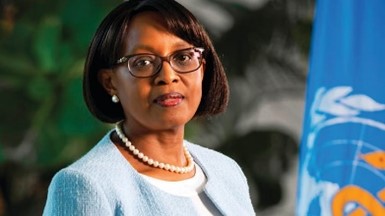Hope: Over 1000 survive Ebola in Liberia


Information available to The NewDawn indicates that accumulatively, at least more than one thousand Liberians have survived the deadly Ebola virus since its outbreak.
This figure cuts across the entire country with some counties which previously recorded higher numbers of infected persons experiencing a big drop in new cases. For example, some counties that were highly hit by the deadly Ebola virus are now experiencing decrease, including Lofa, Bomi, Margibi, Nimba and Montserrado, respectively.
Lofa, a county which recorded the first Ebola patient from Guinea in early March, was among the first to release 15 survivors, including Dr. Melvin Korkor from the Phebe Hospital in Bong County. Since then the story of survivors in Lofa are increasing.
Bomi where a Liberian doctor is using the anti-retroviral drugs to treat Ebola patients has also recorded huge number of survivors. Most recently, the county has reported more than 13 survivors. Margibi, another county hardest hit has also made significant improvement with a drop in new cases. Dolo’s Town, which was quarantined, had its quarantine lifted after a massive effort to eradicate Ebola.
The WHO technical advisor and Ebola coordinator in Margibi County said that there are no new cases there because of the level of community awareness, which has enabled citizens to observe preventive tips prescribed by health authorities. Nimba County, which had earlier suffered the Ebola crisis, is also improving with less new cases and more survivors coming out. Recently, Nimba released about 18 survivors.
Montserrado County has been one of the highly hit Ebola counties here, but is now experiencing a drop in new cases. Dr. Jerry Brown of the ELWA Hospital has discharged scores of survivors. The French charity Medicines Sans Frontieres or Doctors Without Borders and other Ebola centers in Montserrado are also sending home patients on a daily basis.
[bsa_pro_ad_space id=1]
However, on Wednesday, several survivors narrated their ordeal inside the ETU. Kennedy Korvah, a Physician Assistant, said that she contacted the virus after treating a patient.
Ms Korvah detailed that when they (suspected Ebola patients) were taken to the ELWA Hospital, the ambulance dropped them at the gate, but nurses there refused to take them in until she threatened to jump on someone before they were allowed in the treatment unit.
She said her personal belongings, including mobile phones left in the ambulance that took her to the hospital, adding that she had no choice but to have worn pampers while in the treatment unit. Ms Korvah continued that patients’ food was never provided on time, but the experimental drug Zmapp played a major role in her healing.
She stressed that clinicians should be able to identify dead bodies whenever a mortician comes to collect a dead person, saying that they were two patients in a room, but one person eventually died, and the mortician sprayed her instead of the dead body, leading her to become unconscious. However, she later regained consciousness. “Ebola patients need serious attention to survive” she emphasized.
Another Ebola survivor, Ahmed Kamara, who is an ambulance driver, contacted the virus from a sick lady he took care of in his community. He said family of the lady denied that she had shown symptoms of the virus and alleged that it was African sign.
Kamara said he arrived at the ELWA Hospital at 2pm, but was never attended to until 8: 30 PM after threatening to forcibly enter before they took him in. He said while inside, some of the nurses said they were not treating any patient because their salary has been delayed. “Those with sympathetic minds came to our rescue” he added.
Meanwhile, Kamara has volunteered his service to carry on Ebola awareness and also encouraged those who have family members at any Ebola center to please show concern for them to help them recuperate sooner. Zayzay Mulbah, an Ebola survivor said had doubted the existence of Ebola and always believed that drinking alcohol was a preventive approach not until he experienced the deadly virus for himself.
According to him, when he initially got infected, his mother thought he was poisoned so he decided to go to ELWA 3 or MSF treatment center, where he was tested positive and remained for nine days, receiving medication and eventually discharged by doctors. Zayzay said MSF did its best in saving his life so in order to pay back, he has decided to work with the agency to help save other Liberians.
The Chairman of the Network of Ebola survivors Karlie Bonarwolo, is a Physician Assistant, who works at the Redemption Hospital in New Kru Town where he contacted the virus, administering medication to a patient.
Zayzay narrates he was taken to the JFK Ebola Treatment Unit on June 28 and remain there until July 16, 2014 when he was discharged. He said at that time, condition inside the JFK Treatment Unit was very deplorable so much so that whenever rain fell, the patients got wet.
Liberia may have recorded a grim picture three months ago in the Ebola fight, but success stories, as being told by survivors, seem to indicate that with current support from international partners, the country is on the road to reversing the unpleasant thread.
















